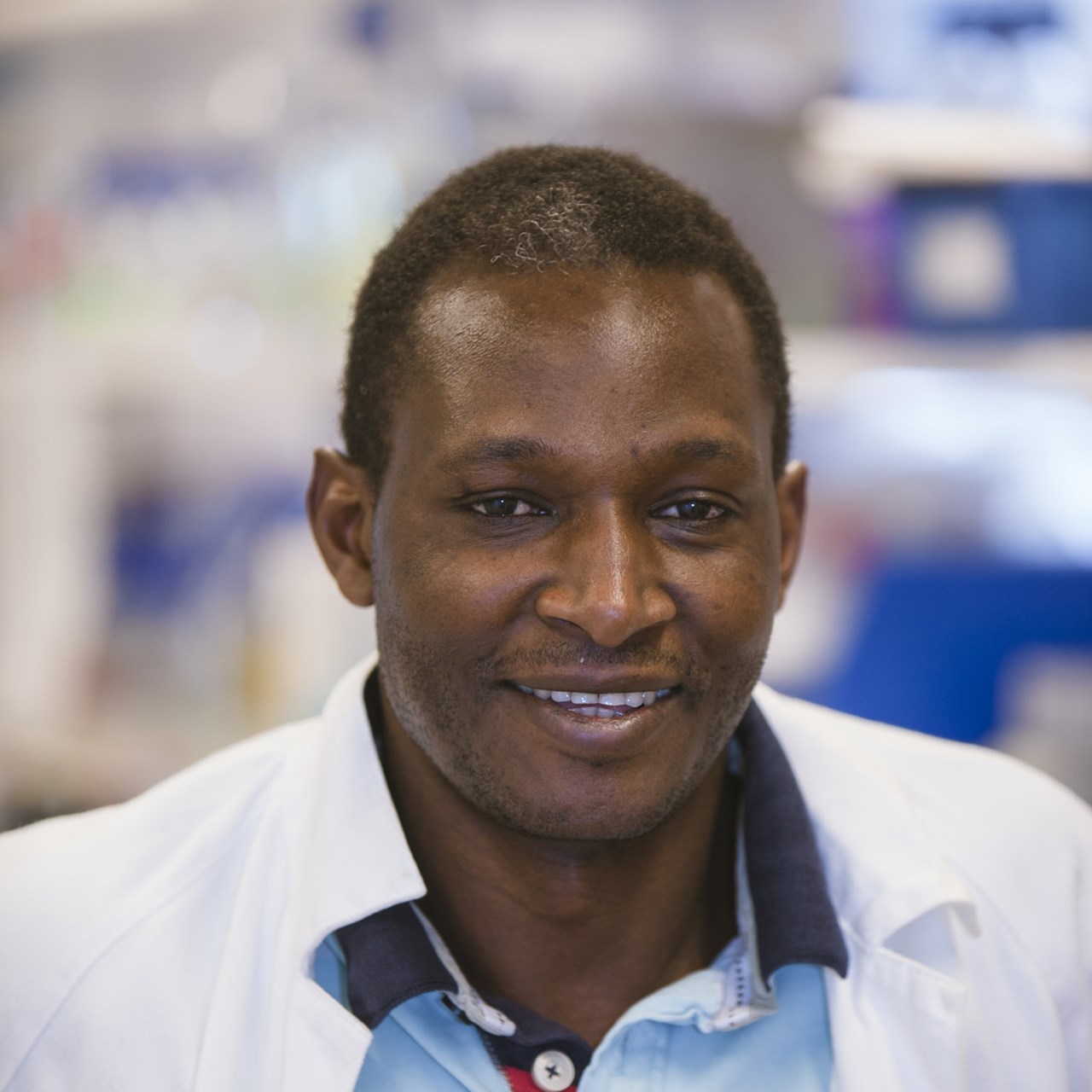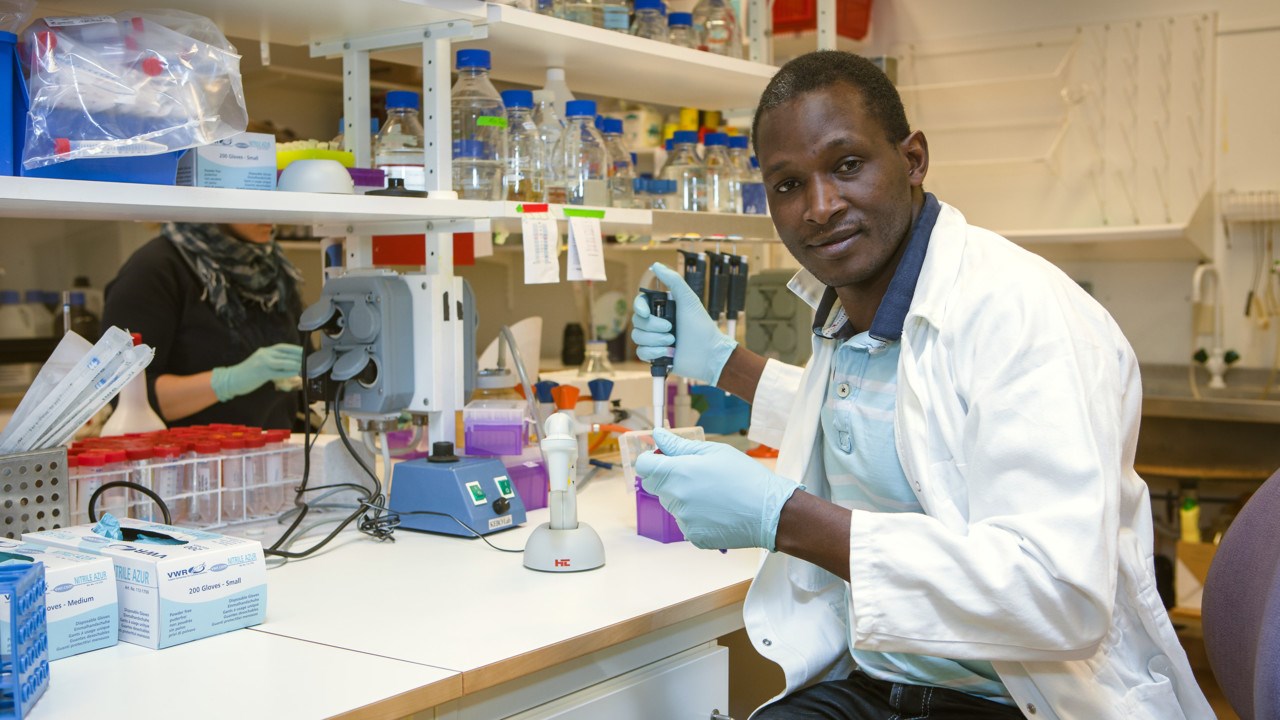Nelson Ongondo Gekara
Born in Kenya.
Has a PhD from the Helmholtz Centre for Infection Research in Braunschweig, Germany and a postdoc from the University of Cologne
At the University of Umeå since 2010.
Current research focuses on how DNA damage affects the immune system and inflammation.
Winner of the 2016 Erik K. Fernström prize.



